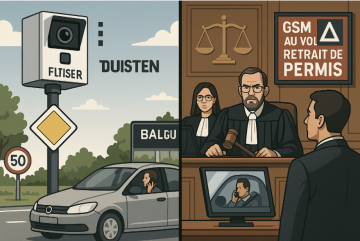Zero Tolerance: The Impact of Drunk Driving on Insurance in Belgium
In Belgium, a driver who causes an accident while under the influence of alcohol or drugs faces severe consequences, far beyond the usual legal penalties such as fines, driving disqualification, the obligation to retake the theoretical and practical driving exams, undergo psychological and medical assessments, or drive a vehicle equipped with an alcohol ignition interlock device. It is important to remember that the insurer may exercise a recourse action against the at-fault driver.
What is the recourse action?
The recourse action allows the insurer to seek reimbursement from the at-fault insured party for the amounts paid to the victims. In concrete terms, if an accident is caused by a driver under the influence, the victims will be compensated, but the insurer can then require the driver to repay the indemnities paid out. This can amount to very large sums, threatening the financial stability of the person responsible for the accident.
Strengthening insurers’ termination policies
This trend towards stricter measures has intensified with the recent announcement by insurer Baloise. From now on, Baloise will systematically terminate the insurance contract of any driver involved in an accident under the influence of alcohol or drugs, even if it is their first offense or their blood alcohol level was only slightly above the legal limit.
This decision, reported by Het Nieuwsblad on September 11, 2024, highlights the insurer’s new zero-tolerance policy. This measure applies to both existing clients and new customers. Anyone involved in an accident while under the influence will have their contract terminated, and new clients with a history of drunk driving will be systematically refused.
A strong message to drivers
Baloise aims to send a clear message with this measure: driving under the influence will be severely punished, both legally and financially. While some insurers may still terminate a contract only after multiple accidents, the trend appears to be shifting towards a general tightening of sanctions for drivers under the influence.
What this means for drivers
The termination of an insurance contract carries heavy consequences. The at-fault driver will not only have to find a new insurer, often at much higher premiums due to their driving record, but may also face outright denial of coverage. Furthermore, the risk of having to personally repay the compensation awarded to victims through the recourse action increases the financial stakes.
In conclusion, it is crucial for every driver to be aware of the legal and financial consequences of driving under the influence in Belgium. The new measures adopted by companies like Baloise reinforce driver responsibility and aim to improve road safety.




